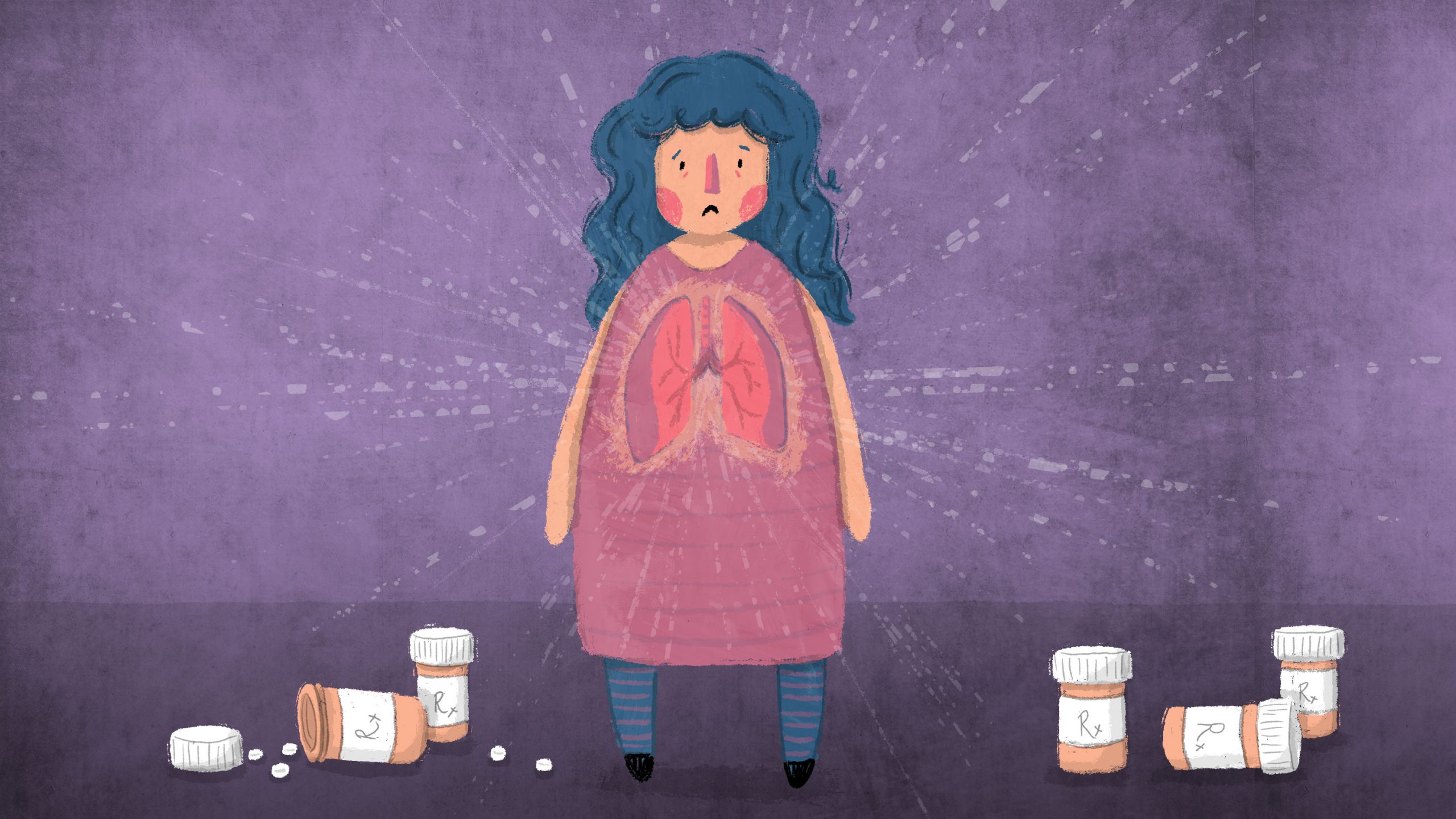At the beginning of March this year, I had one of those blast-from-the-past-triggers which promptly brought on a terrible cough. I was back in my childhood, lying in bed, coughing. Looking back, I realised I’d spent the majority of my life coughing. I had chronic bronchitis since I was a child and smoked for thirty years, from the age of twelve to forty-two. Coughing, being ill, lying in bed, were „normal“ to me.
This time, for the first time, I realised how lonely and painful this had been. Listening to myself coughing was like hearing a whole orchestra of coughs, evoking the different beds I‘d lain in, in different countries and houses over the years.
And I thought that coughing is really a language, the language of the unheard. It‘s a sound of anger, of accusation, of hurt, of grief, of protest. It‘s a mix between a shout and a bark, loud and unmistakable. In a way, coughing is cathartic. After a coughing fit, I feel calmer, as well as sore and vulnerable. Respiratory illnesses, on a psychosomatic level, are about vulnerability. The lungs are our most delicate organs. They are the organ most exposed to the world outside of the body. And, as such, they are dependent, like children, on the outside world being a friendly place, on the atmosphere being agreeable or at least tolerable, literally and metaphysically. Without adequate air quality, the lungs can‘t function and highly sensitive people are adversely affected by tense and hostile environments.
The rattling sounds in my chest sounded ominous, more ominous than my cough actually was. The infection had only reached the trachea. My bronchi and lungs remained untouched and intact. I found it moving, to imagine my lungs, innocently floating inside their pleural sacs, armoured by the ribs. On the front lines though, higher up in the body, there was a war going on. The upper airways were inflamed, the goblet cells busy with producing mucus. When coughing, it‘s easy to forget that mucus is not only the airways‘ method of binding intruding matter, so that it can be ejected, but that it also acts as protection by lubricating the mucous membranes. My body was fighting for me, protecting my delicate lungs and I was feeling sorry for myself.
That didn‘t seem right at all. It was time for some gratitude to my body, for helping me, for protecting me. And it was time to create a different norm: to speak up, to talk about my feelings and to treat myself more kindly.

